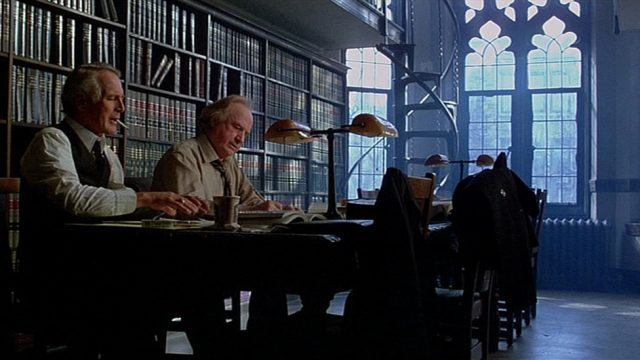If a film is directed by Sidney Lumet, written by David Mamet, and starring Paul Newman, Charlotte Rampling, James Mason, Jack Warden, and Milo O’Shea, do I really need to say anything else about it? This could be the shortest Film on the Internet ever! What am I even doing here?
Frank Galvin (Newman) is a drinker. He’s also a lawyer, but it’s been a long time since that mattered as much as the drinking. The law is just a way to keep up appearances, a reason to drop a little Visine in his bloodshot eyes before he goes to funeral homes and offers his business card to confused, grief-stricken widows. He’s not even a proper ambulance-chaser; ambulance-chasing is a step up from what he’s doing. He’s hearse-chasing, and he’s doing it badly. His wallet, dignity, and soul are all taking a hit.
But then his friend Mickey (Jack Warden) sends him a sure thing, an easy win to put some money in his pocket and some varnish on his badly damaged reputation. It’s a malpractice case–involving a young woman who went under general anesthesia, choked on her own vomit, and is now in a coma–against a Catholic hospital, and the Church is ready to cut a check and make all this go away. For reasons neither Lumet nor Newman overplay, however, Frank finds that he can’t live with letting this all sink without so much as a ripple.
What helps The Verdict keep up a sublime level of tension is that once the first flush of pride at his moral stance dies down, Frank is almost instantly confronted with the possibility that he’s fucked everything up. The impassioned expert witness he lined up got a sudden free vacation to the tropics, courtesy of the Church’s deep pockets. The family he’s trying to help is rightly enraged at him for turning down the offered settlement–a life-changing amount of money, to them–without even telling them about it. The judge’s bias is infuriatingly obvious. And on top of all that, his opposite number in court is James Mason at his most affable and most terrifying. There’s a great scene where Frank, clearly feeling sick to his stomach, scrambles to try to get the settlement offer back on the table or find some other kind of escape hatch, and Lumet shoots it from the corner of the room, down by the floor, letting both setting and scene overwhelm us. This is all too big, too much.
The Verdict offers some classic courtroom drama pleasures, from some particularly dramatic testimony (delivered by Lindsay Crouse, almost a one-scene wonder here) to a closing that’s an eloquent, heartfelt plea for justice. The actors are phenomenal: as good as Newman is here, James Mason’s performance might be my favorite. And while the script doesn’t go full Mamet, but there are characters–Mason’s, Rampling’s, and Crouse’s, in particular, who evoke his vision–and they get some of the best and most brutal lines. When Rampling’s Laura dresses down a self-pitying Frank–“You want to be a failure? Then do it somewhere else. I can’t invest in failure”–every word cuts like its own separate razor. Lumet’s consummate skill holds it all together and gives us some terrific scenes and moments in and out of the courtroom (including one of cinema’s best ringing phones). The Verdict is a testament to artistic collaboration, with everyone, on-screen and off-, feeling indispensable to the film’s success.

